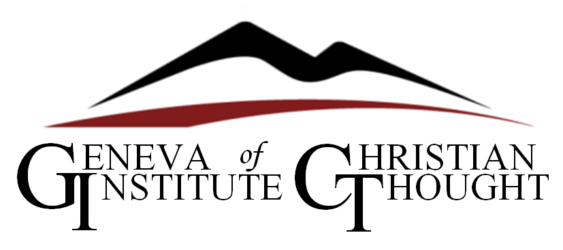Note: This is a multi-part article, for previous installments see:
Part 1: The Educational Wilderness
Philosophy drives culture.
There are, of course, other elements that impact culture but culture always operates within a philosophical framework—even when that framework is not clearly described or even understood. It is worth considering, then, what underlying philosophy is driving higher education culture. In Part 1: The Educational Wilderness, I suggested that the philosophical basis for contemporary higher education was “personal identity.” There are a couple of problems with this suggestion. First, it is a generalization and it is rather easy to find exceptions. Second, it is not primary in the sense that it is rarely the basic framework from which its adherents operate. It is often, however, the consensus idea around which a number of popular philosophical systems agree—at least on the surface.
Contemporary culture is pluralistic. Rather than affirming a single Truth, it is much more comfortable affirming all “truths” even when those “truths” are demonstrably contradictory. There are a number of dominant philosophies that underlie this pluralistic culture. These include: nominal Christianity, philosophical and practical atheism, Marxism including Christian liberation theology, utilitarianism, and skepticism. That this broad philosophical accord centered on personal identity is largely based on political convenience and contains its own seeds of destruction is beyond the scope of discussion here. The fact is that it is here and until it deconstructs it will form the basis for the cultural climate in which we live.
Two basic Christian ideas are sacrificed in the philosophy of personal identity: authority and covenant. Authority is sacrificed primarily because the source of Truth (our Lord Jesus Christ) is denied. What is denied may be our Lord himself or his lordship. In either case, there is no ultimate authority upon which to base one’s life. Covenant is sacrificed because the individual is given de facto supreme authority. God’s plan for the individual—to live in the covenantal context of God, church and family—is denied and the individual is encouraged to assert his own identity. In fact, if the individual does not assert his own identity, including his own personal truth and purpose, he is considered weak and not fully mature.
It seems evident that the philosophy driving higher education is personal identity and is, as such, directly opposed to Christianity.
God is neither affirmed nor considered relevant to academic studies. If religion is studied it is studied from a sociological point of view. If Christianity is studied, the purpose is often to undermine its authority and its relevance. If the idea of God is not directly attacked it is undermined by its demonstrated obsolescence.
The role of the church to regulate the Christian life in doctrine and practice is also denied. Yes, it is true that the authority of the church only extends to its conformance to Scripture; but when the individual is raised to a position of supreme authority the effect is to silence the church’s voice. It is the individual that determines truth and it is the individual that determines right and wrong. It no longer matters that the church through submission to God’s Word has affirmed a certain truth or a certain practice throughout its history. The church is fallible and the individual is supreme.
The family, however, is most directly challenged by the philosophy of personal identity. The disintegration of marriage and the obliteration of gender are most visible. The destruction of generational authority is less so but is perhaps even more significant. Outside of an expected source of funding, the parents of the student are irrelevant in contemporary higher education. The student is expected to make their own choices, forge their own futures, and repent for their forefather’s sins.
This is a toxic mix. Submission to our Lord, our church, and our parents all play important roles in the outworking of the Christian’s life.
Though I have no doubt that it is possible to survive the philosophy of personal identity and I have confidence in God to preserve those who are His, I also know that many have fallen away. And many who do persevere emerge with scars from the struggle. This gives rise to questions that need answers. Generally speaking, is it right to ask such a difficult task of our young men and women? Generally speaking and outside of a special calling, would we ask it for any other endeavor in life? Would we not encourage those finding themselves in similar circumstances to seek relief?
I am reminded of William Bradford’s account of Plymouth Plantation. Why did that community leave the relatively safe confines of Holland for the New World? Bradford gives three primary reasons. The relevant one for our purposes reads,
. . . . Many of their children, who were of the best disposition and who had learned to bear the yoke in their youth and were willing to bear part of their parents’ burdens, were so oppressed with their labours, that though their minds were free and willing, their bodies bowed under the weight and became decrepit in early youth,–the vigour of nature being consumed in the very bud, as it were. But still more lamentable, and of all sorrows most heavy to be borne, was that many of the children, influenced by these conditions, and the great licentiousness of the young people of the country, and the many temptations of the city, were led by evil example into dangerous courses, getting the reins off their necks and leaving their parents.
This is a community that according to John Robinson “truste[d] that the Lord was with [them],” and were “well weaned from the delicate milk,” and were “knit together as a body in a most strict and sacred bond.” Surely their children were at least as well prepared as ours. Our only guarantee that our sons and daughters will be “neither barren nor unfruitful in the knowledge of [their] Lord Jesus Christ,” according to 2 Peter 1, is if they through “giving all diligence, add to [their] faith virtue, to virtue knowledge, to knowledge self-control, to self-control perseverance, to perseverance godliness, to godliness brotherly kindness, and to brotherly kindness love.”
Toward this end, culture matters. It was culture that compelled the Pilgrims to reject the status quo and establish the Plymouth Plantation. It is culture that should compel us to seek alternatives to the present status quo and establish new practices on better philosophical foundations.
Follow this link to continue this article:
Part 3: Academics and Educational Choices

